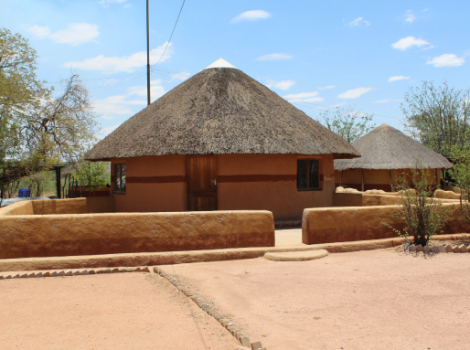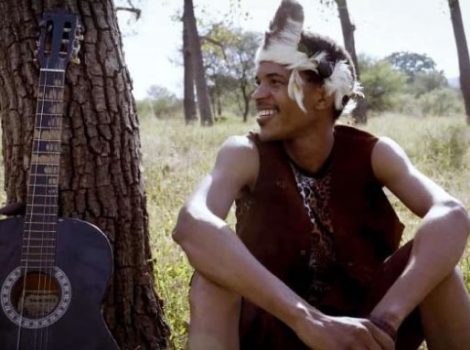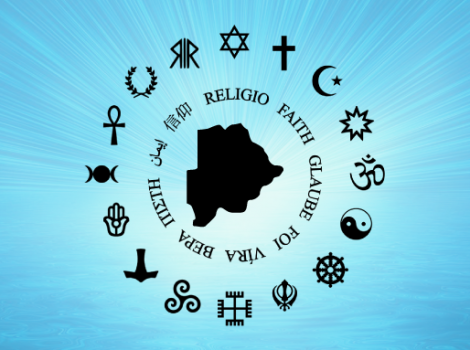Etiquette is quite simply; a code of polite conduct, a set of guidelines any responsible person should follow in the way they carry themselves in society. It doesn’t matter where in the world you are, whether or not you consciously know about etiquette; we’re all taught how to conduct ourselves in relation to others and how to present ourselves when we go out into the world.
It’s all about being decent, courteous and good old-fashioned manners. As most people will probably have been taught, good manners don’t cost a thing. This ‘code of conduct’ actually applies to most if not all cultures; it’s a universal thing.
Setswana etiquette is no different. In Setswana culture, as I’m sure it’s the case in other cultures, the concept of good etiquette goes as far back as time itself. It is what the spirit of botho is all about. I strongly believe that the Botswana Embassy in Japan website hits the nail on the head in its description of botho –
“Setswana society expects and requires its members to have “botho”, which is derived from “motho” (a human being). Botho refers to the possession of the good attributes associated with a good human being, in other words, qualifying one to be called a human being.
In short, botho can be referred to as a yardstick for good behaviour, which is consistent with the expectations and cultural norms of Setswana society. That code of behaviour includes good manners, helpfulness, politeness, humility and consideration for others, respect for older people and many more positive attributes expected of a human being”.
Ms. Sefalana R. Matambo (Second Secretary, Embassy of Botswana to the Kingdom of Belgium, the Kingdom of the Netherlands and Permanent Mission to the European Union) eloquently supports this;
“Long before the lexicon was conceived, the people of Botswana were already living the concept of both.” – Diplomat magazine (January 2015)
She further highlights that the Setswana word botho, describes a “latent consciousness that one’s own sense of humanity is deeply rooted in the humanity of others in the community, whom we traditionally consider our extended family.”
Ms. Matambo says the spirit of botho speaks to the very core of our humanity and says,
“I am because you are” (Motho ke motho ka batho), a social contract of earning respect by first giving it. It is humanness as an essential element of human growth, compassion, humility, sharing, responsibility and accountability.
She continues, “Most importantly, for us Batswana, it is greater than doing what is good because it is right. It is an innate manner of existence that permeates the grandness of the cultural spirit of Batswana across every aspect of our lives – the home, community life, education, the workplace, and national policy. It is the social and cultural cohesion that ensures no Motswana shall rest easy knowing that another is in need.”
So important is the concept of botho to Batswana that it is upheld within Botswana’s five National Principles, the other four being Democracy, Development, Self-reliance and Unity. All are derived from Botswana’s cultural heritage and as a collective, are designed to promote kagisano [social harmony].
The atmosphere of friendship, respect and mutual understanding – elements of Botho – is the platform upon which Botswana promotes all aspects of the country’s national development agenda.
Botho is a powerful and revered cultural concept that unites us all and, by virtue of its true essence, excludes none.
And with those powerful words, Ms. Matambo inspired within me a desire to put together an article that reminds us all of the importance of botho. Wherever you go in Botswana these days, there are those who believe that this noble concept is slowly being eroded. As Botswana becomes more developed and industrialised, people seem to be becoming more insular and uncaring. But I strongly feel it would be truly sad if Batswana totally lost sight of the importance of botho and how it has and continues to contribute to Botswana being the compassionate, caring and just nation that it is today.
I have compiled a list of rules of decorum that are common in Botswana, which a lot of people regardless of origin, will recognize because they apply almost anywhere you go in the world.
Ten Basic Etiquette Rules I was Taught As a Child
Always say please and thank you.
Always greet people, especially if they are older than you- clearly behaviour, traditions and culture evolve because a younger colleague recently told me she found having to greet people very exhausting and annoying, even if she needs help from the very person she needs help from!
Always show respect towards anyone who’s older than you. By the same token, Setswana culture recognises and promotes the importance of elders respecting the young in order to enjoy the same respect. This also applies to a boss and his subordinates scenario. (Setswana proverb – susu ilela suswane gore suswane le ene a go ilele).
- Do not eat and walk; rather wait to get where you’re going before you start eating. With our busy modern lifestyles, this one may not always be practical, as a lot of us eat on the move. I have done it, but still to this day cringe when I do it because it was always drummed into me growing up!
- Don’t fart or burp loudly in the company of others. Don’t go around spitting, it’s just disgusting to others.
- Don’t snort and clear your throat very loudly in the company of others.
- Don’t talk louder than you need to. This applies to when you’re on the phone.
- Cover your mouth when you sneeze or cough.
- Don’t chew with your mouth open, or talk with your mouth full.
- Don’t butt in while someone else is still talking; let them finish first before saying your piece.
- Bonus rule: If you have nothing nice to say, don’t say anything!
What rules of etiquette were you taught growing up other than the ones listed above? Are the ones listed above familiar to you? Please feel free to share what you know!
Reference:
http://www.botswanaembassy.or.jp/culture/index3.html
Diplomat Magazine




Great article. I’m glad my own article in Diplomat Magazine inspired you. Keep up the good work!
Sefalana R. Matambo
Thank you and good luck.